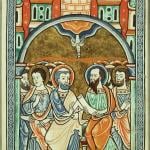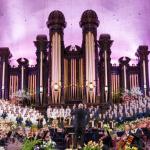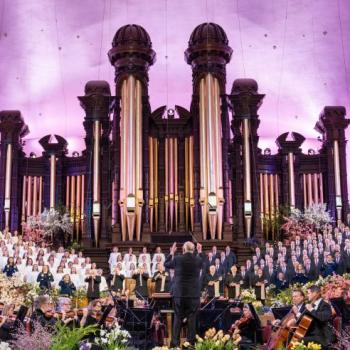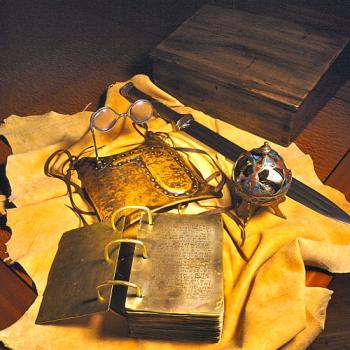Today in our adult Institute class, Sister Jackie Poulsen challenged us to pray to the Lord and ask, “In what way is Zion not in me?”
I recently read Neal A. Maxwell’s Of one heart : the glory of the City of Enoch, which includes fictional letters from Mahijah, a curious, then faithful, follower of Enoch, to his non-believing friend, Omner. Elder Maxwell’s deft way of exploring and explaining the cultural and philosophical basis of Enoch’s Zion had already challenged me to ask, “In what way is Zion not in me?”
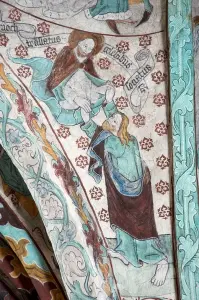
Here are a few of Elder Maxwell’s descriptions of Zion’s residents.
Everyone here, in seeking the interest of his neighbor, seeks the larger interest. As a man blesses his neighbor, he also blesses himself, but the contrary is not always so. Let a person or a people persistently seek only their own interests, and there will finally come both a poverty of purse and a shrinking of soul.
It would be wrong to think that life in the city of Enoch is an idyllic, undisturbed, tranquil scene with nothing to do but to sit about and talk of truth. There are duties to be done, skills to put in service. Because neighbors love neighbors, each man learns his duties. For each, his work is his love made manifest for mankind.
We soon learn here that it is not enough to abstain from acts adverse to our fellowmen; we must also be anxiously engaged in good causes that lie unattended and all about us every day.
It is a great joy to learn…how to help gladly and quietly and without acclaim.
[C]itizens are more concerned with the truthfulness of their utterances than with their manner of speaking.
I have learned by sad experience that there is no expiation in retaliation; vengeance not only prolongs conflict, but also deepens and widens it. Thus, forgetfulness and forgiveness, by being intertwined, make strong the chords of brotherhood.
Righteousness increases the uniqueness of our presence, but sin sinks us into sameness.
We now see clearly, as pertaining to our goods and possessions, that unless we are equal in earthly things, we cannot be equal in heavenly things. We can have goods in common because we first have Christ in common. Only an uncommon people can have their possessions in common, and even then the challenge is very real and constant. . . . Each of us have possessions we value highly, but which we must lay aside if we are to be true disciples.
I soon found that if I could but be patient even if others were patient with me, if I could but absorb unkind words without responding at once in resentment. . . I have learned to check my conduct by asking myself such simple questions as: “Whose needs am I really trying to meet?” As I involve myself in the give and take of life here, I first check for the presence of pride in the midst of my emotions. Often when I feel wounded, upon sober reflection, I see that it is my pride, not a principle, that is the cause.
Men fear…only when there is not sufficient love in their hearts. Perfect love casts out fear, and he that fears is not made perfect in love. There is liberty in love. Only when men are not fearful can they be anxiously and fully engaged in bringing to pass much righteousness, turning outward instead of inward.
The process of believing together is the beginning of the unity of our minds. The process of repenting brings us to a great unity in the manner of our living. The process of being baptized shows our willingness to submit to a common ordinance, that we might become an uncommon people. Receiving the gift of the Holy Ghost brings us to a unity in perceiving things as they really are and in the performing of our daily duties.
Prayer keeps us ever mindful of our dependence on God.
Peace is based not alone on justice, but also on the process of self-discipline and selflessness without which peace is impossible. Contrariwise, where people’s thoughts are selfish, they will, one way or another, find cause to feel deprived or injured.
Those who worship the Creator are exceedingly creative.
Enoch had to be in command of himself before he could command the elements. God gives his power only to those by whom it will be safely and sweetly used. Once our will accords with his, there is no longer any reason for God to withhold his power from men.
We once saw this city only through eyes of faith; we now see it emerging with our natural eyes. And we are glad!
As we intentionally seek the become a Zion person, the Lord sanctifies us. The Lord continuously strives to to do His work and glory, to establish Zion—in a city, in communities, in a ward, in a family, in my own heart—until finally, it is said,
Behold, the tabernacle of God is with men, and he will dwell with them, and they shall be his people, and God himself shall be with them, and be their God.


